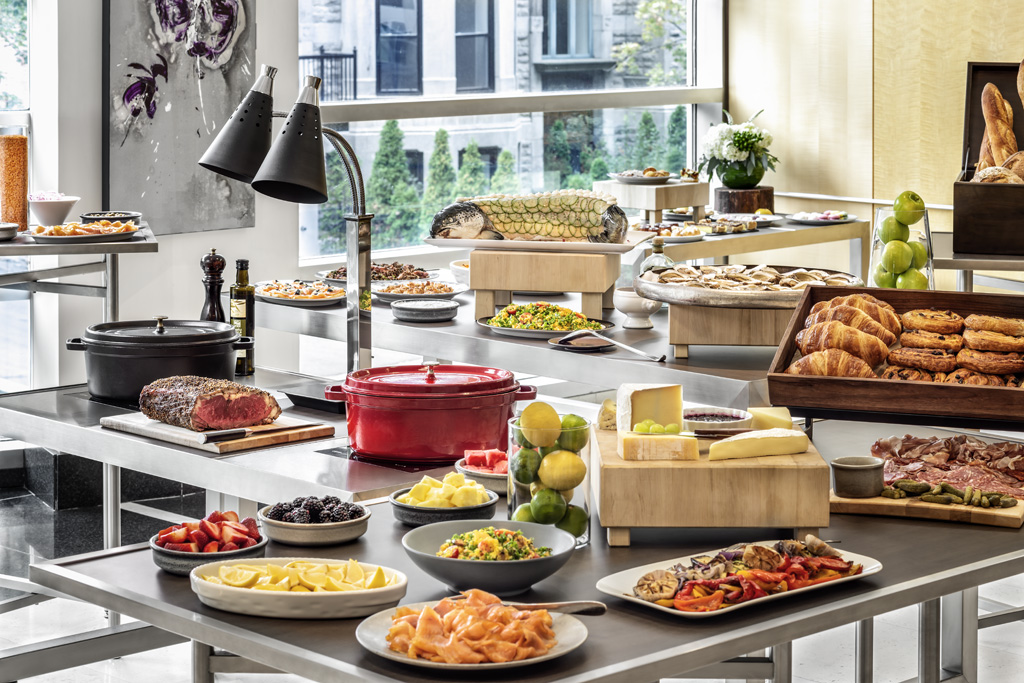We've written so much about this topic that it seems hard to get practical information beyond great strategies or good resolutions... Rest assured, we're making it easy with this checklist to help you organize sustainable events.
What can you reduce?
During an event, between 20 % and 50 % of the caterer's food is thrown away in the trash.
If the space has its own catering service (or with your caterer), you need to check that the kitchen is responsible. The most common waste comes from buffets. It is better to look for quality rather than a large quantity of different products.
Also, ask guests to confirm their attendance just before the event to avoid no-shows, and ask if they have any intolerances, allergies or religious practices.
To reduce CO2The space should offer water-saving and energy-efficient systems, with insulation measures and low-energy lighting (LED). Or better yet: its design and structure should be based on bioclimatic architecture guidelines, such as SO/Sotogrande recently opened, a smart hotel with a specific technological tool that will help you measure and reduce your carbon footprint.


What can you reuse?
Think about the possibility of extending the life of certain elements designed for the event, for example modular constructions or screens rather than printed elements. Also consider donating certain materials to an NGO or schools: a stage, lighting... It is very easy to organize the collection or donation of uneaten food by collaborating with foundations or using applications such as To Good To Go, which more than 650 Accor hotels in Europe are already using to exploit surpluses.
Give a second life even to towels! Awareness is important, so much so that when guests agree to reuse their towels, it is even possible to plant trees with the savings made on laundry.
What can you recycle?
The idea is that the client, his suppliers, the agency team and the assistants can more easily sort the waste and send it to a recycling plant. When it comes to plastic, it's better to eliminate all disposable plastic rather than opt for recycling. Straws, glasses, mixers and other bathroom items no longer have a place in Accor hotels, and the few that remain will be eliminated from meeting rooms, bedrooms and restaurants by 2022.
And don't forget the social part!
The working conditions and integration of employees, choosing preferably local, seasonal, ecological or fair trade products, which always go hand in hand with a healthier diet. For example, during your coffee break, you can always choose responsibly consumed coffee or tea in Accor hotels.
Your event can have a solidarity aspect, with an initiative that has a positive impact on any group or community... and your venue can too. Accor has created more than 400 projects around the world: In Spain, the "Entre femmes" project supports nearly 40 women victims of violence through dressmaking and sewing workshops. In France, the "Des Étoiles et des Femmes" program helps train women from priority neighborhoods in Marseille, Montpellier and Bordeaux in high-level jobs. And in Italy, young people are consolidating their culinary skills thanks to the "In presa" project, which promotes their employment.

Net Zero Carbon Calculator by Accor
Calculate the carbon footprint of your next event and find out how to reduce it with the Net Zero Carbon Calculator developed by Accor!
To know more about it



